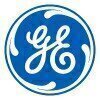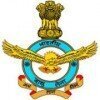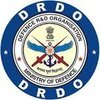


i
Tata Advanced Systems
Filter interviews by
Tata Advanced Systems DT Engineer Interview Questions and Answers
Tata Advanced Systems DT Engineer Interview Experiences
1 interview found
(2 Questions)
- Q1. Tell me about your self
- Q2. What was your fav subject
What people are saying about Tata Advanced Systems






Interview questions from similar companies

Bhojgjmmkgxkgdhkdkhydgkxgkxkdykdykdgkdhkxgkxgkxgkdhkfhkfylflyyodkyflh
(2 Questions)
- Q1. What is your strength
- Q2. What is your weekness
(2 Questions)
- Q1. What is your salary expectation
- Q2. What is your future plan
Interview Preparation Tips

Senior Engineer Interview Questions & Answers
SOLAR INDUSTRIES INDIAposted on 27 May 2024
I applied via Approached by Company and was interviewed in Nov 2023. There was 1 interview round.
(1 Question)
- Q1. About your experience

Senior Engineer Interview Questions & Answers
Honeywell Technology Solutionsposted on 28 Feb 2024
Was asked to write a program for linked list
(1 Question)
- Q1. Was asked to explain program and some logical questions
(1 Question)
- Q1. Normal Salary discussion
Interview Preparation Tips

Senior Engineer Interview Questions & Answers
Honeywell Technology Solutionsposted on 21 Dec 2024
I applied via Recruitment Consulltant and was interviewed before Dec 2023. There were 3 interview rounds.
(2 Questions)
- Q1. Basics of htm javascript es6 angular
- Q2. Css scss
Interceptor concepts
(1 Question)
- Q1. Salary negotiation

Interview Questionnaire
2 Questions
- Q1. Explain about the current projects i have dealt with
- Q2. Questions related to regression fitting

Interview Questionnaire
1 Question
- Q1. Basic avionic domain questions

I applied via Campus Placement
Interview Preparation Tips
Experience: Good
Tips: Very good resume
General Tips: Prepare well
Skills: Technical Skills, Scholastic Skills
Duration: 2
College Name: IIT Madras
Motivation: GE
Funny Moments: Good canteen

I appeared for an interview in Dec 2016.
Interview Questionnaire
1 Question
- Q1. Basics questions from thermodynamics were asked. But I was unable to solve deflection problem in Strength of material
Interview Preparation Tips
Experience: Quantitative analysis questions were easy but technical questions were hard enough. I had cleared the Aptitude test
Tips: Go through the basics of each subject in your respective branch.
Duration: 1 hour 30 minutes
Total Questions: 100
Round: Group Discussion
Experience: We were given 5 minutes for preparation and then discussion started. I made a mistake by cross questioning the people in my group, but still i got selected
Tips: Try to start the discussion or try to give the conclusion.
Duration: 10 minutes
Round: Technical Interview
Experience: I did not get selected for next round
College Name: Sinhgad College Of Engineering (SCOE)

Engineer Interview Questions & Answers
Honeywell Technology Solutionsposted on 30 Jun 2015
Interview Preparation Tips
Experience: To appear for test CG cut off -7.0. English and Basic aptitude/logical reasoning questions were asked. Basic coding questions and identifying errors in the program were there.
Round: Technical Interview
Experience: It was a 30-40 minutes round where questions were asked resume-based. Aerospace students were asked basic aero questions based on Navier Stokes equation,etc. There were no coding questions.
Round: HR Interview
Experience: It was a 15 minutes round where only some standard questions were asked.
Skill Tips: Courses in control systems might help but are not compulsory.Just describe one or two projects from your courses & BTP, which should be enough.Ensure that you know about the company well. BTP was very useful in my interview for Honeywell, it is not in their area of interest but he was just impressed by the project details. If you are applying for a core interview BTPs will definitely help.
Skills: Basic coding knowledge, Good aptitude, Willing to learn new things.
College Name: IIT MADRAS
Tata Advanced Systems Interview FAQs
Tell us how to improve this page.
Tata Advanced Systems Interviews By Designations
- Tata Advanced Systems Diploma Trainee Engineer Interview Questions
- Tata Advanced Systems Senior Executive Interview Questions
- Tata Advanced Systems Assistant Manager Interview Questions
- Tata Advanced Systems Quality Engineer Interview Questions
- Tata Advanced Systems Senior Executive Engineer Interview Questions
- Tata Advanced Systems Intern Interview Questions
- Tata Advanced Systems Officer Interview Questions
- Tata Advanced Systems Senior Engineer Interview Questions
- Show more
Interview Questions for Popular Designations
- Software Engineer Interview Questions
- Senior Software Engineer Interview Questions
- Senior Engineer Interview Questions
- System Engineer Interview Questions
- Quality Engineer Interview Questions
- Design Engineer Interview Questions
- Associate Software Engineer Interview Questions
- QA Engineer Interview Questions
- Show more
Tata Advanced Systems DT Engineer Interview Process
based on 1 interview
Interview experience
Interview Questions from Similar Companies
Fast track your campus placements
|
Assistant Manager
528
salaries
| ₹4.7 L/yr - ₹16.2 L/yr |
|
Senior Executive
394
salaries
| ₹4.5 L/yr - ₹11 L/yr |
|
Assistant Engineer
336
salaries
| ₹1.9 L/yr - ₹5.3 L/yr |
|
Executive
319
salaries
| ₹3 L/yr - ₹8.5 L/yr |
|
Officer
245
salaries
| ₹1.7 L/yr - ₹4.5 L/yr |

Indian Army

Indian Air Force

Hindustan Aeronautics

Indian Navy
- Home >
- Interviews >
- Tata Advanced Systems Interview Questions >
- Tata Advanced Systems DT Engineer Interview Questions









